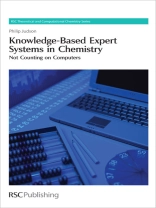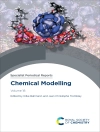This is currently the only book available on the development of knowledge-based, and related, expert systems in chemistry and toxicology. Written by a pioneer in the field, it shows how computers can work with qualitative information where precise numerical methods are not satisfactory. An underlying theme is the current concern in society about the conflicts between basing decisions on reasoned judgements and wanting precise decisions and measurable effectiveness. As well as explaining how the computer programs work, the book provides insights into how personal and political factors influence scientific progress. The introduction of regulations such as REACH in Europe and modifications to UN and OECD Guidelines on assessment of chemical hazard mean that the use of toxicity prediction is at a turning point. They put a heavy burden on the chemical industry but, for the first time, allow for the use of computer prediction to support or replace in vivo and in vitro experiments. There is increasing recognition among scientists and regulators that qualitative computer methods have much to offer and that in some circumstances they may be more reliable and informative than quantitative methods. This excellent introduction to a field where employment opportunities are growing is aimed at students, scientists and academics with a knowledge of chemistry.
Cuprins
Introduction; Knowledge-Based Approach to Synthesis Planning; EROS and CAMEO; Spin-off from the Harvard project; Structure, sub-structure and super-structure searching – technical; Structure representations; Explicit and implicit hydrogen atoms; Aromaticity, tautomerism, stereochemistry; Predicting toxicity – DEREK; PHARM-MATCH and TOX-MATCH, Oncologic, and Hazard Expert; Top Kat and Multicase; The 2D/2.5D/3D debate; Using reasoning – Derek for Windows; Predicting metabolism – Meteor Relative reasoning; Biodegradation; Other potential applications; Consensus modelling; Evaluation and Validation; Conclusions/Where now?
Despre autor
Walter Thiel studied chemistry at the University of Marburg (West Germany) from 1966 to 1971, where he subsequently obtained his doctorate with A. Schweig in 1973. After a post-doctoral stint at the University of Texas at Austin with M. J. S. Dewar (1973–1975), he obtained his habilitation from the University of Marburg in 1981. He was appointed Professor of Theoretical Chemistry at the University of Wuppertal (West Germany) in 1983 and Professor of Chemistry at the University of Zurich (Switzerland) in 1992. In 1987 he was a visiting professor at the University of California at Berkeley. Since 1999, he is a director at the Max Planck Institute for Coal Research in Mülheim an der Ruhr (Germany) and an honorary professor at the neighbouring University of Düsseldorf (Germany) since 2001.











